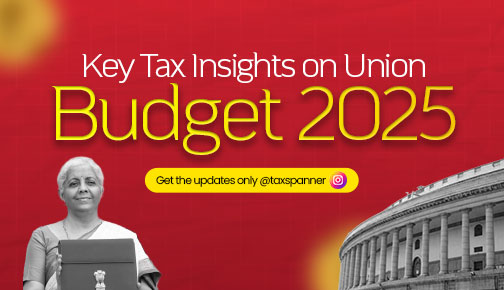Advance Tax Payment: Everything You Need to Know
Advance tax, often referred to as ‘pay-as-you-earn’ tax, is an essential aspect of income tax compliance for individuals and businesses in India. It is the tax that is paid in advance on the income that you expect to earn during the financial year, rather than paying the entire tax liability at the end of the year. In this blog, we will walk you through the key aspects of advance tax, its calculation, due dates, and who needs to pay it.
What is Advance Tax?
Advance tax refers to the income tax that is paid by taxpayers in instalments before the year-end, making sure that there are no outstanding tax dues at the end of the financial year. As per the Income Tax Act of 1961, it is a mandatory payment for certain categories of taxpayers whose tax liability exceeds Rs. 10,000 in a financial year. This helps the government with a steady stream of revenue, preventing any last-minute tax rush for individuals.
Who Needs to Pay Advance Tax?
The requirement to pay advance tax extends to individuals, salaried employees, freelancers, and businesses. Here’s a breakdown of who qualifies:
Salaried Individuals
While salaried individuals generally have tax deducted at source (TDS), they may still need to pay advance tax if they have additional sources of income, such as interest, rental income, or capital gains.
Self-employed Professionals
Doctors, lawyers, freelancers, and consultants need to estimate their annual income and pay advance tax accordingly.
Businesses
All businesses, whether small enterprises, startups, or large corporations, must pay advance tax if their estimated income exceeds the Rs. 10,000 threshold.
Senior Citizens
Individuals over the age of 60 are exempt from paying advance tax unless they have income from a business or profession.
How is Advance Tax Calculated?
The calculation of advance tax is straightforward. You need to estimate your total taxable income for the year and then calculate the tax based on the applicable income tax slabs. Here’s how you can do it:
- Estimate your gross income for the financial year, including salary, interest, rental income, capital gains, and any other income sources.
- Deduct eligible expenses and claim deductions under Section 80C to Section 80U to arrive at your taxable income.
- Use the appropriate income tax slab to calculate your tax liability.
- Subtract any TDS (Tax Deducted at Source) already paid.
- If the remaining tax liability exceeds Rs. 10,000, you are required to pay advance tax.
Advance Tax Due Dates for FY 2024-25
The advance tax needs to be paid in four instalments throughout the year. The due dates and percentage of tax to be paid by each date are as follows:
- 15th June: 15% of the total estimated tax liability
- 15th September: 45% of the total estimated tax liability (including the earlier instalment)
- 15th December: 75% of the total estimated tax liability (including the earlier instalments)
- 15th March: 100% of the total estimated tax liability (including the earlier instalments)
Timely payment of advance tax avoids interest penalties under Section 234B and 234C of the Income Tax Act.
What Happens if You Don't Pay Advance Tax?
Failure to pay advance tax on time can result in interest charges under Section 234B (for non-payment or shortfall of tax) and Section 234C (for delay in instalment payments). The interest is calculated at 1% per month or part of the month on the outstanding amount. This can significantly increase your tax burden if not managed properly.
How to Pay Advance Tax?
You can pay advance tax both online and offline.
Online Payment:
- Visit the official Income Tax Department’s e-filing portal.
- Choose the ‘e-Pay Taxes’ option.
- Select the appropriate form for advance tax, usually ITNS 280.
- Enter your relevant details, such as PAN, assessment year, and the bank through which you wish to make the payment.
- Complete the payment process using net banking or debit/credit cards.
Offline Payment:
You can visit a bank branch authorized by the Income Tax Department to pay your advance tax via challan.
To simplify the process further, platforms like TaxSpanner offer comprehensive assistance with advance tax payments. From easy tax calculations to timely reminders and payment support, TaxSpanner helps taxpayers stay compliant and avoid penalties. Whether you’re an individual or runs a business, TaxSpanner makes sure that your tax payments are handled accurately and on time.
Importance of Paying Advance Tax
Paying advance tax has several benefits:
- Avoids Penal Interest: Timely payments will help you avoid penalties under Sections 234B and 234C.
- Improves Financial Planning: Paying tax in instalments allows you to better manage your cash flow throughout the year.
- Simplifies Year-End Compliance: Since most of your tax is paid in advance, your year-end tax filing becomes a much simpler process.
In conclusion, advance tax is a critical element of tax planning for individuals and businesses. By understanding the due dates, calculation methods, and penalties for non-payment, you can avoid unnecessary interest charges and make your financial year-end smooth. Make sure you calculate your income carefully and pay your taxes on time to stay compliant with Indian tax laws.
Explore TaxSpanner's wide range of calculators for your tax planning and calculations!
View Tools & Calculators



